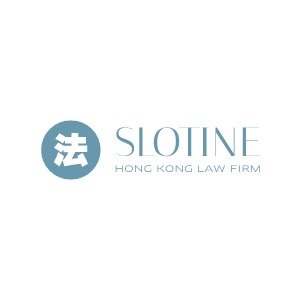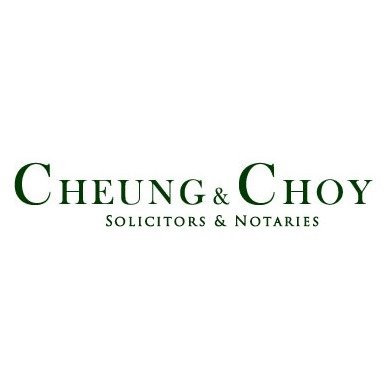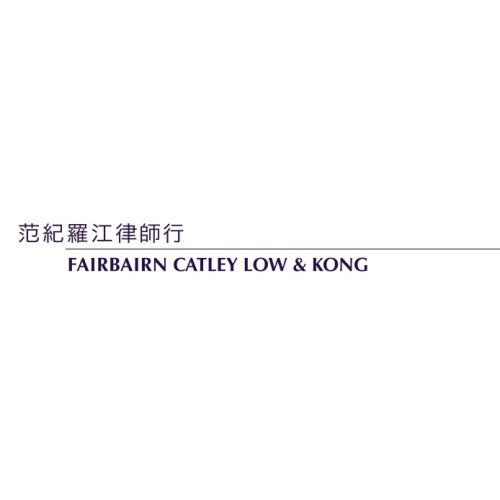Best Tax Increment Financing Lawyers in Wanchai
Share your needs with us, get contacted by law firms.
Free. Takes 2 min.
List of the best lawyers in Wanchai, Hong Kong
About Tax Increment Financing Law in Wanchai, Hong Kong
Tax Increment Financing (TIF) is a financial tool used to stimulate urban development and regeneration in particular areas. In Wanchai, Hong Kong, TIF involves the reinvestment of urban development proceeds to promote economic growth and infrastructure improvements. Hong Kong's legal system facilitates these initiatives by allowing for investments that support the community and enhance property values, fostering a robust urban environment.
Why You May Need a Lawyer
There are several common scenarios where legal counsel might be required in the context of TIF:
- Interpreting complex TIF agreements and ensuring compliance with local regulations.
- Resolving disputes involving stakeholders, such as developers, local authorities, and financial institutions.
- Advising on the structuring of investments and projects financed using TIF.
- Navigating tax implications and benefits related to TIF initiatives.
- Consulting on the feasibility and impact assessments for proposed TIF projects.
Local Laws Overview
In Wanchai, Hong Kong, the TIF-related legal framework is guided by several key components:
- The Land Development Corporation Ordinance: Provides provisions for land development projects and the use of TIF in urban renewal.
- The Buildings Ordinance: Establishes guidelines for safe and efficient construction practices, essential for TIF projects.
- The Town Planning Ordinance: Regulates land use planning to ensure the developed infrastructure meets community expectations.
- The Urban Renewal Authority Ordinance: Catalyst for facilitating urban renewal actions, including those backed by TIF.
Frequently Asked Questions
What is the purpose of Tax Increment Financing?
TIF is used to finance development projects within a designated area by diverting future tax revenues to investment in public infrastructure or improvements aimed at stimulating economic growth.
How does Tax Increment Financing work?
TIF captures the additional property tax revenues generated by increased property values as a result of development, borrowing against future increases to pay for current improvements.
Who are the typical stakeholders in TIF projects?
Key stakeholders often include local government bodies, property developers, financial institutions, and community organizations.
Are there risks associated with TIF?
Yes, risks include potential misallocation of funds, non-fulfillment of projected revenue increases, and conflicts between stakeholders.
Is legal approval required for a TIF district in Wanchai?
Yes, establishing a TIF district requires compliance with local laws and ordinances, and often coordination with governmental authorities.
Can TIF finance both public and private projects?
Typically, TIF is used primarily for public infrastructure improvements, but it can have indirect benefits on private projects by enhancing surrounding areas.
How are TIF funds generated?
TIF funds are generated from the increased property tax revenue derived from raised property values within the TIF district.
What happens if a TIF project fails to generate expected returns?
If expected returns are not met, it can result in insufficient funds for debt repayment, and may require adjustments to the TIF strategy or additional funding sources.
Can residents be affected by TIF projects?
Residents may experience benefits such as improved infrastructure, but there may also be concerns about increased taxes or unwanted development impacts.
What is the role of a lawyer in a TIF project?
A lawyer can provide essential legal advice on structuring the TIF deal, ensuring compliance, and mediating in stakeholder negotiations.
Additional Resources
The following resources may provide further assistance:
- Hong Kong Urban Renewal Authority: Supports urban revitalization initiatives.
- The Hong Kong Institute of Planners: Offers guidance on land use planning and development.
- The Law Society of Hong Kong: Provides access to a network of legal professionals specializing in real estate and financing legislation.
Next Steps
If you are considering or involved in a TIF project in Wanchai, following these steps is advisable:
- Conduct thorough research and analysis of the potential project's implications.
- Consult with legal professionals specializing in TIF to understand compliance requirements and strategic structuring.
- Engage with local authorities to ensure alignment with community objectives and legal frameworks.
- Prepare to negotiate with stakeholders effectively, keeping community impact and profit in balance.
By following these steps and seeking appropriate legal guidance, individuals and organizations can successfully navigate the complexities of TIF in Hong Kong.
Lawzana helps you find the best lawyers and law firms in Wanchai through a curated and pre-screened list of qualified legal professionals. Our platform offers rankings and detailed profiles of attorneys and law firms, allowing you to compare based on practice areas, including Tax Increment Financing, experience, and client feedback.
Each profile includes a description of the firm's areas of practice, client reviews, team members and partners, year of establishment, spoken languages, office locations, contact information, social media presence, and any published articles or resources. Most firms on our platform speak English and are experienced in both local and international legal matters.
Get a quote from top-rated law firms in Wanchai, Hong Kong — quickly, securely, and without unnecessary hassle.
Disclaimer:
The information provided on this page is for general informational purposes only and does not constitute legal advice. While we strive to ensure the accuracy and relevance of the content, legal information may change over time, and interpretations of the law can vary. You should always consult with a qualified legal professional for advice specific to your situation.
We disclaim all liability for actions taken or not taken based on the content of this page. If you believe any information is incorrect or outdated, please contact us, and we will review and update it where appropriate.

















